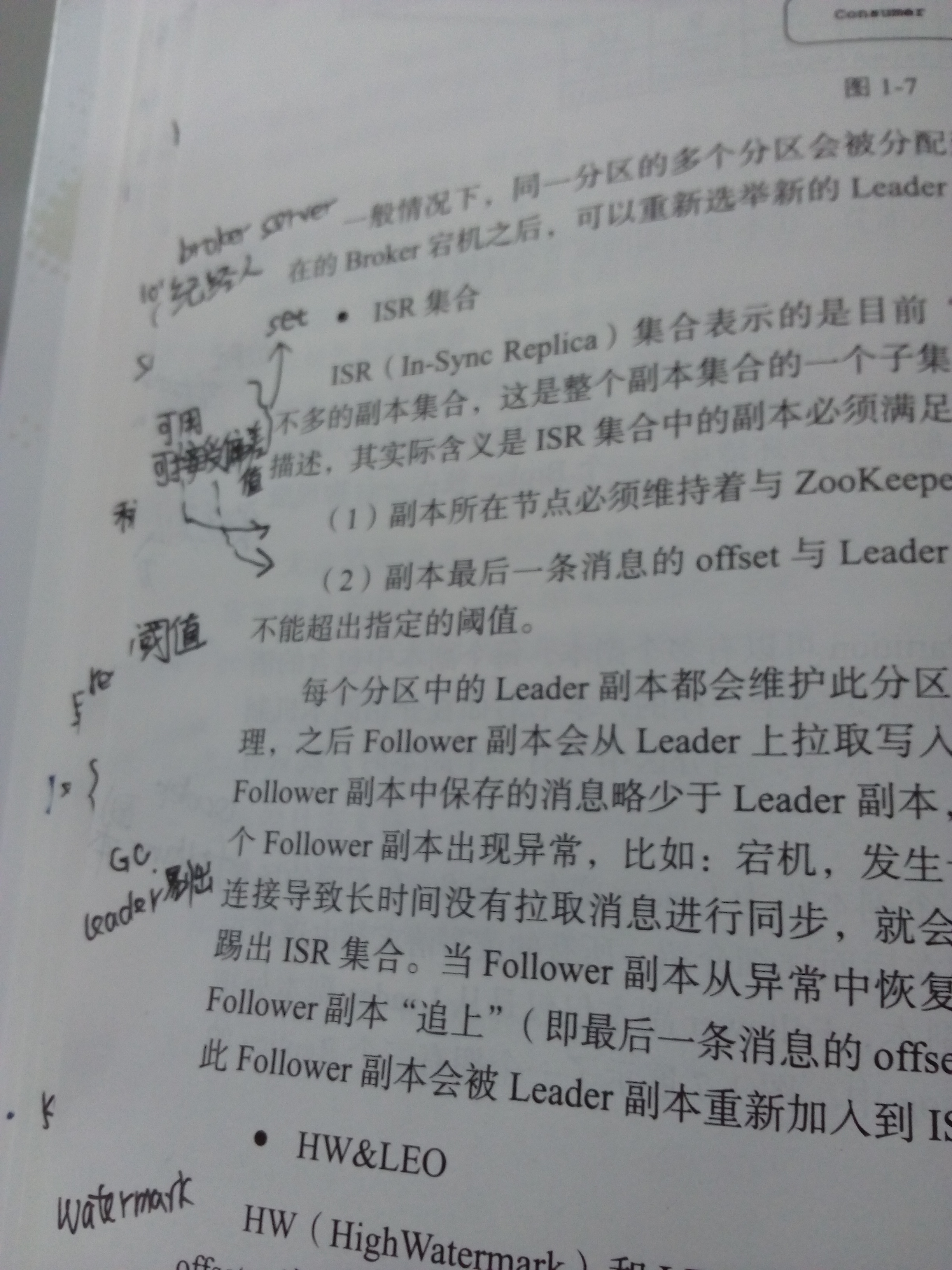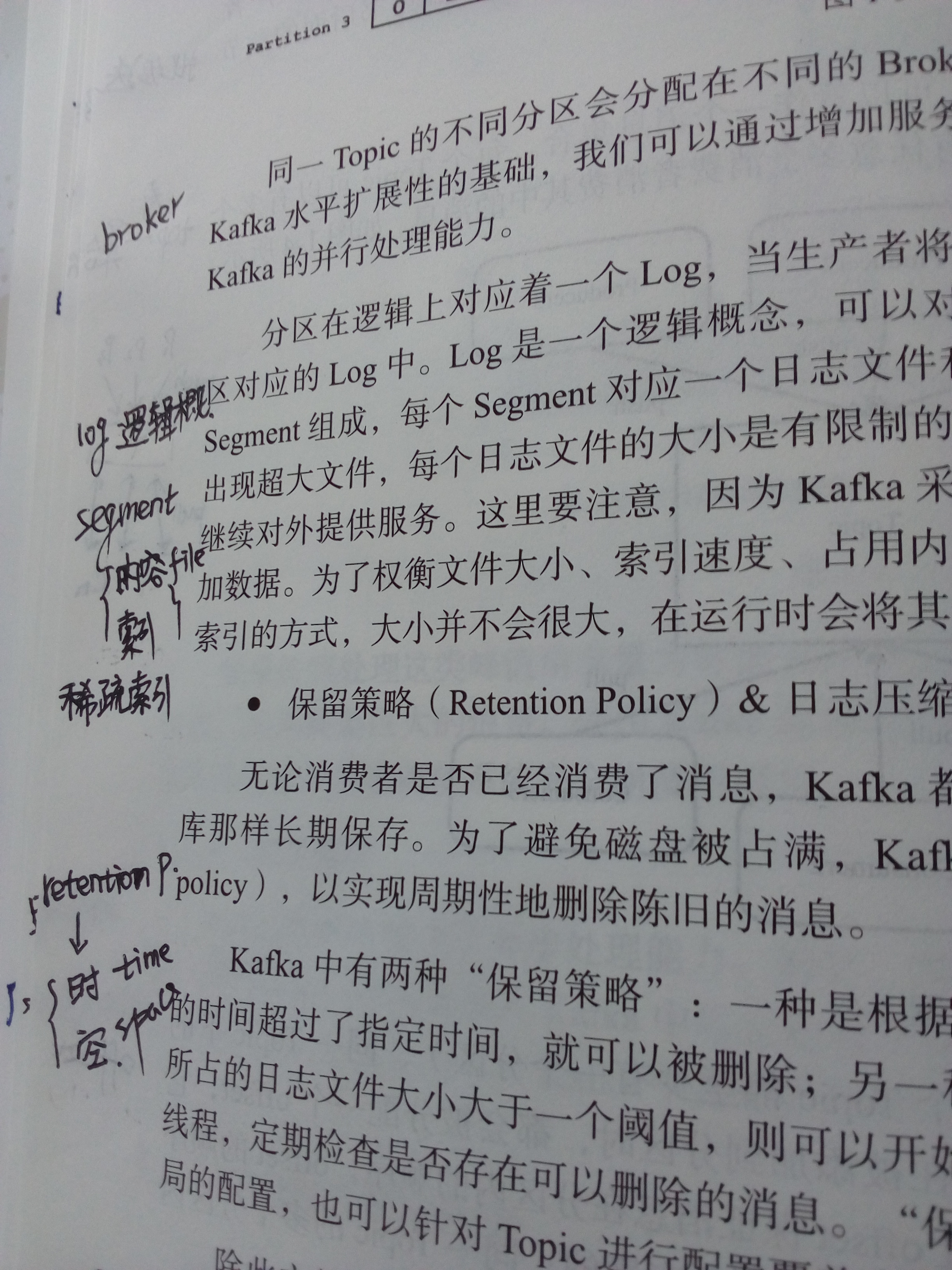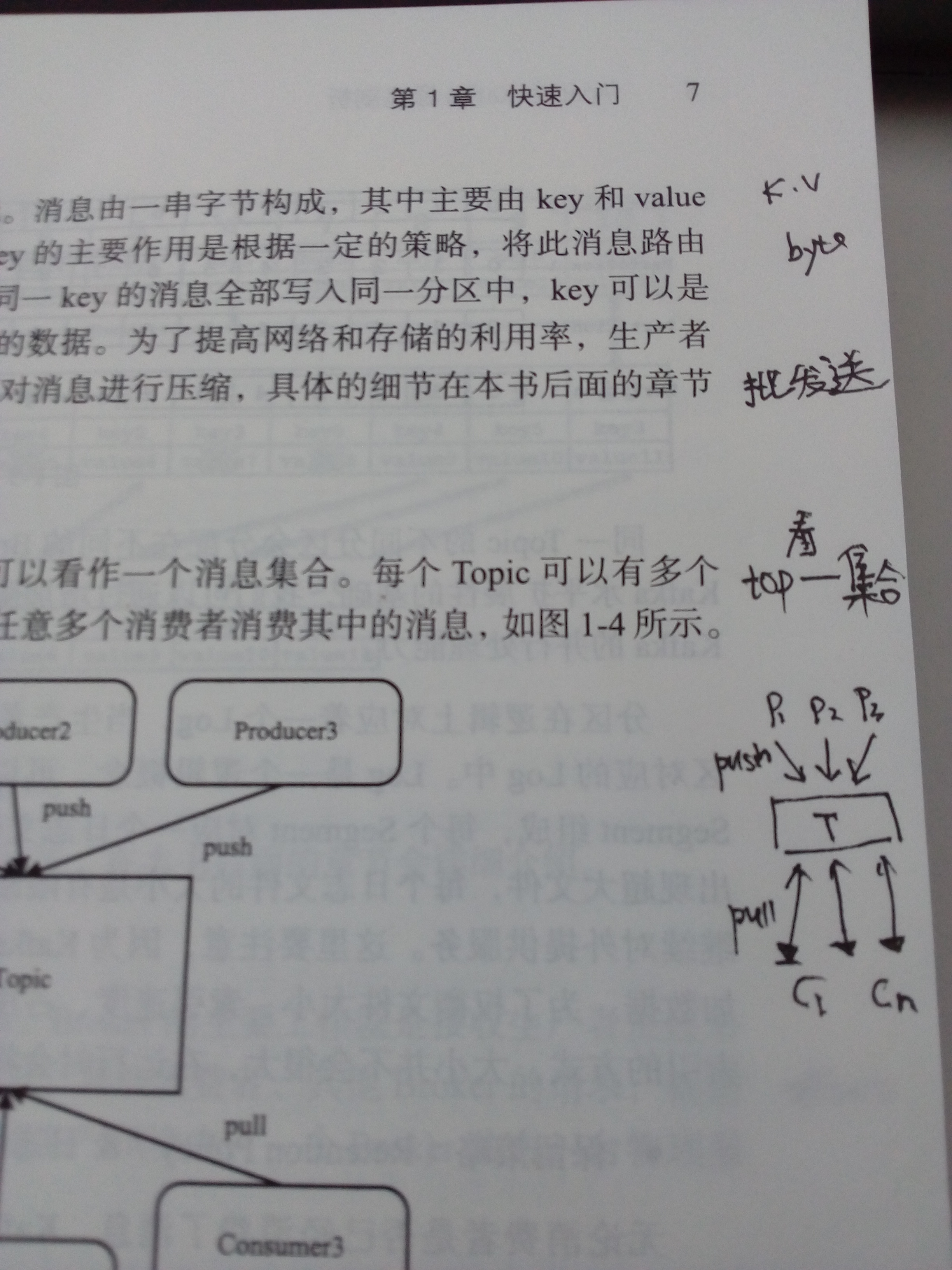Consumer Group Example



面向kafka编程

Consumer Group Example
https://cwiki.apache.org/confluence/display/KAFKA/Consumer+Group+Example
The ‘zookeeper.session.timeout.ms’ is how many milliseconds Kafka will wait for ZooKeeper to respond to a request (read or write) before giving up and continuing to consume messages.
The ‘zookeeper.sync.time.ms’ is the number of milliseconds a ZooKeeper ‘follower’ can be behind the master before an error occurs.
https://cwiki.apache.org/confluence/display/KAFKA/Consumer+Group+Example
http://kafka.apache.org/documentation.html
private static ConsumerConfig createConsumerConfig(String a_zookeeper, String a_groupId) {
Properties props = new Properties();
props.put("zookeeper.connect", a_zookeeper);
props.put("group.id", a_groupId);
props.put("zookeeper.session.timeout.ms", "400");
props.put("zookeeper.sync.time.ms", "200");
props.put("auto.commit.interval.ms", "1000");
return new ConsumerConfig(props);
}
【多对多】
package com.test.groups;
import kafka.consumer.ConsumerConfig;
import kafka.consumer.KafkaStream;
import kafka.javaapi.consumer.ConsumerConnector;
import java.util.HashMap;
import java.util.List;
import java.util.Map;
import java.util.Properties;
import java.util.concurrent.ExecutorService;
import java.util.concurrent.Executors;
public class ConsumerGroupExample {
private final ConsumerConnector consumer;
private final String topic;
private ExecutorService executor;
public ConsumerGroupExample(String a_zookeeper, String a_groupId, String a_topic) {
consumer = kafka.consumer.Consumer.createJavaConsumerConnector(
createConsumerConfig(a_zookeeper, a_groupId));
this.topic = a_topic;
}
public void shutdown() {
if (consumer != null) consumer.shutdown();
if (executor != null) executor.shutdown();
try {
if (!executor.awaitTermination(5000, TimeUnit.MILLISECONDS)) {
System.out.println("Timed out waiting for consumer threads to shut down, exiting uncleanly");
}
} catch (InterruptedException e) {
System.out.println("Interrupted during shutdown, exiting uncleanly");
}
}
public void run(int a_numThreads) {
Map<String, Integer> topicCountMap = new HashMap<String, Integer>();
topicCountMap.put(topic, new Integer(a_numThreads));
Map<String, List<KafkaStream<byte[], byte[]>>> consumerMap = consumer.createMessageStreams(topicCountMap);
List<KafkaStream<byte[], byte[]>> streams = consumerMap.get(topic);
// now launch all the threads
//
executor = Executors.newFixedThreadPool(a_numThreads);
// now create an object to consume the messages
//
int threadNumber = 0;
for (final KafkaStream stream : streams) {
executor.submit(new ConsumerTest(stream, threadNumber));
threadNumber++;
}
}
private static ConsumerConfig createConsumerConfig(String a_zookeeper, String a_groupId) {
Properties props = new Properties();
props.put("zookeeper.connect", a_zookeeper);
props.put("group.id", a_groupId);
props.put("zookeeper.session.timeout.ms", "400");
props.put("zookeeper.sync.time.ms", "200");
props.put("auto.commit.interval.ms", "1000");
return new ConsumerConfig(props);
}
public static void main(String[] args) {
String zooKeeper = args[0];
String groupId = args[1];
String topic = args[2];
int threads = Integer.parseInt(args[3]);
ConsumerGroupExample example = new ConsumerGroupExample(zooKeeper, groupId, topic);
example.run(threads);
try {
Thread.sleep(10000);
} catch (InterruptedException ie) {
}
example.shutdown();
}
}
| group.id | A unique string that identifies the consumer group this consumer belongs to. This property is required if the consumer uses either the group management functionality by using subscribe(topic) or the Kafka-based offset management strategy. |
string |



 浙公网安备 33010602011771号
浙公网安备 33010602011771号